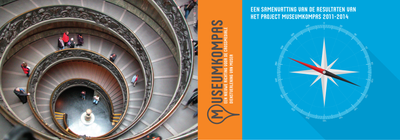Virtual communities are online spaces with potential of integration of (member-generated) content and conversations [7,8]. In our research project we are interested in the adoption and building of virtual communities in organized sports, that is to say in the voluntary sports clubs (VSCs) in the Netherlands. Since these VSCs have massively transferred their communication with members from paper club magazines to online channels, these virtual communities arise from the use of a growing number of websites, e-mail and social network sites (SNSs). Although virtual communities are broadly investigated, such as social communities, brand communities, and public communities, there is little scholarly interest in virtual communities of member organizations that VSCs are an example of. The study that is to be presented at SECSI 2019 concerns the clubs’ use of SNSs (ClubSNSs), such as Facebook and Twitter, within the virtual communities. These SNSs are increasingly used by the VSCs to facilitate organizational communication and to obtain a good internal climate [9]. However, academic understanding of the impact of ClubSNSs’ content and conversations on the organizational performance of the VSC is in its infancy. In our study, we examined this impact of ClubSNSs use on the involvement among members and whether we can explain this by members’ identification with the club. Furthermore, we have tried to categorize ClubSNSs by content types, such as informative, conversational or sociable ClubSNSs, and their role in stimulating the use of ClubSNSs. In this way we attempted to gain insight into the effect of types of ClubSNSs’ content and conversations on membership involvement and the mediating role of identification with the club. This insight can help VSCs to develop effective ClubSNS channels that contribute to organizational goals such as supportive and loyal membership.
MULTIFILE

Research to indicators to build a typology of virtual communities in organized sports.
DOCUMENT
Dit project had als doel museumprofessionals kennis en vaardigheden aan te reiken in de ontwikkeling van crossmediale diensten, ze zelf de mogelijkheid te geven diensten mee te laten ontwikkelen en ze concrete oplossingen te laten implementeren in hun eigen organisatie. Het project leverde handvatten op waarmee museale instellingen goed onderbouwde strategische keuzes voor crossmediale diensten konden maken. Gedurende de looptijd zijn er diverse activiteiten georganiseerd en is een aantal tools ontwikkeld, tezamen gebundeld in Het Museumkompas (www.museumkompas.nl). Samen met de partners zijn er vier Museum Battles georganiseerd, is een Museumwijzer ontwikkeld en een Prestatie-Indicatorenset samengesteld. Daarnaast is de Crossmedia Monitor Musea gebouwd, waarin de activiteiten op Facebook en Twitter van ruim 400 Nederlandse musea worden gevisualiseerd. Ook is een groot aantal presentaties, congresbijdragen en workshops verzorgd voor museumprofessionals, en is er een aantal wetenschappelijke artikelen gepubliceerd. Dit boekje geeft een beknopt overzicht van het onderzoeksproject Museumkompas. Wij hopen dat het u een goed beeld geeft van alle resultaten die we met elkaar de afgelopen jaren hebben neergezet
DOCUMENT
